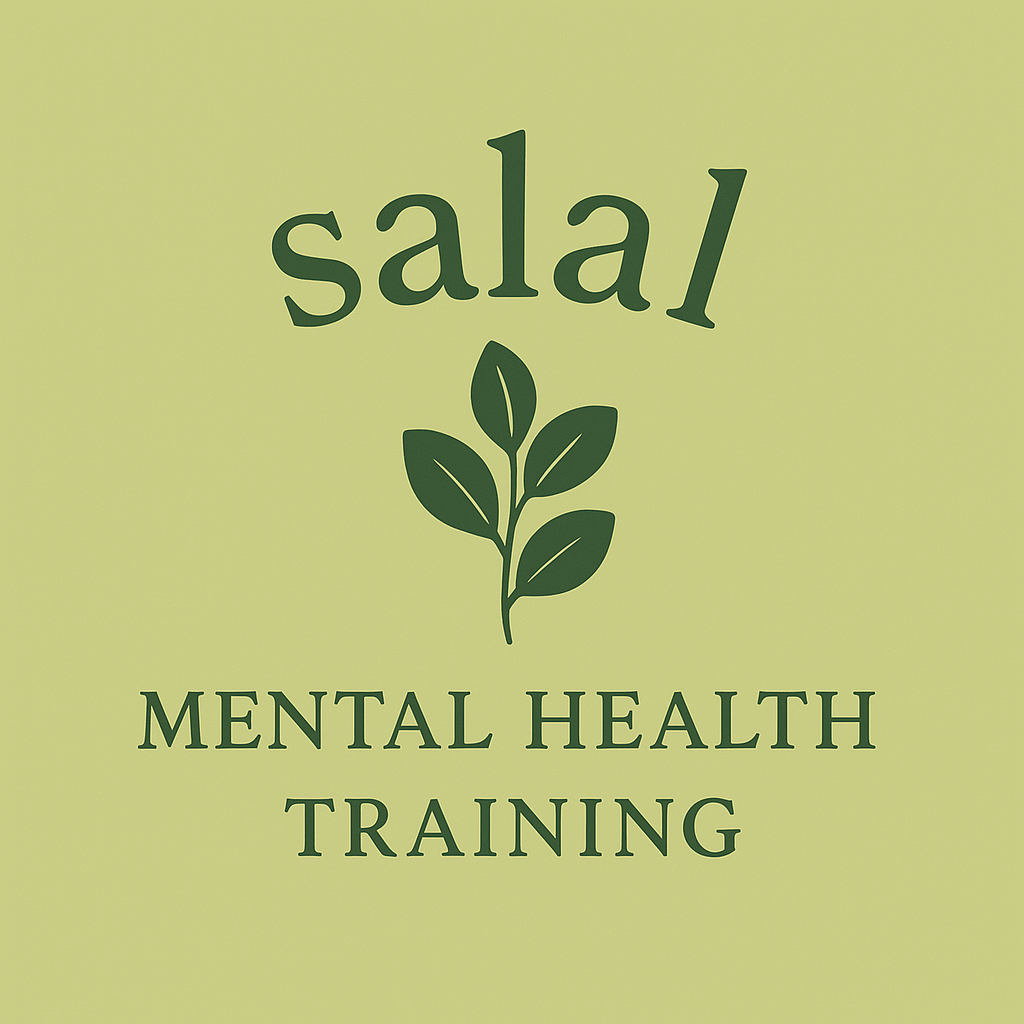Five Early Signs of Burnout - and How to Respond with Compassion
- Salal Mental Health Training

- Oct 14
- 3 min read
Burnout doesn’t always arrive with a breakdown or dramatic moment. More often, it creeps in quietly, through long workdays, emotional fatigue, and the subtle sense that you’re running on empty. Recent studies show that more than 76% of employees experience burnout at some point in their careers.
At Salal Mental Health Training, we believe early recognition is key to prevention. Whether you’re supporting yourself, a coworker, or a loved one, knowing the signs helps you respond with empathy, not judgment.
Understanding Burnout
Burnout impacts not only individuals but also their teams and organizations. It can lead to decreased productivity and increased absenteeism. In fact, a Gallup survey found that organizations with high burnout levels can lose up to 20% of their workforce in a year. Understanding the early signs can help mitigate these effects and contribute to a healthier work environment.
Sign 1: Chronic Fatigue
Chronic fatigue is at the top of the list when it comes to early signs of burnout. This feeling doesn't fade after a good night’s sleep. Imagine getting up in the morning, and despite hours of rest, you still feel as tired as you did the night before. This unrelenting exhaustion can affect performance both at work and at home.
Compassionate response: Give yourself (or others) permission to rest without guilt. Schedule quiet time and set clear work–life boundaries.

Sign 2: Increased Irritability
Feeling irritable? You’re not alone. Increased irritability is a telling sign of burnout. Situations that once seemed manageable can now feel extremely frustrating. For example, someone might snap at coworkers over minor mistakes, or family tensions may flare over trivial matters. Tasks that once felt meaningful now feel pointless.
Compassionate response: Approach this feeling with curiosity. Ask what’s changed: workload, environment, support - and where small reconnections can begin. Encourage open discussions about stresses without fear of judgment. Sometimes, sharing personal experiences can build a sense of camaraderie and show individuals they're not in this alone.
Sign 3: Decreased Motivation
When the brain is overloaded, concentration and creativity drop. You might make more mistakes or feel like you can’t keep up. Recreational hobbies or projects that once ignited passion can suddenly feel like burdens. This disinterest might lead individuals to procrastinate or avoid responsibilities altogether.
Compassionate response: Instead of pushing harder, step back. Focus on small, achievable milestones. Delegate, take breaks, or talk openly with a supervisor or peer. Sometimes, pausing is more productive than powering through. Encouragement and checking in can also bolster their spirits and help them find joy again in their activities.
Sign 4: Withdrawal from Social Interactions
Burnout often leads to withdrawal from friends and family. This isolation can further deepen feelings of loneliness. For example, someone may start declining invitations to social gatherings, preferring to spend time alone, which can worsen the emotional toll of burnout.
Compassionate response: Make an effort to reach out. A simple message asking how someone is doing or inviting them for a coffee can show you care. Engaging them in low-pressure social settings allows space for connection without overwhelming them.
Sign 5: Physical Symptoms
The body often signals distress before the mind catches up, and physical symptoms of burnout can be easy to overlook. Common issues include headaches, digestive troubles, or disruptions in sleep patterns. Ignoring these signs could lead to serious health concerns over time. Studies show that stress can exacerbate 30% of chronic diseases.
Compassionate response: Remind yourself and others to listen to their bodies. Seeking medical advice when symptoms persist is crucial. Incorporating mindfulness practices, such as yoga or meditation, can also help reduce stress and improve overall health.

A Culture of Care Starts with Awareness
Recognizing burnout is not a sign of weakness - it’s a sign of self-awareness. When we learn to notice and respond with compassion, we create workplaces and communities where people can thrive, not just survive.
At Salal Mental Health Training, our workshops and Mental Health First Aid certification teach practical tools for recognizing, supporting, and guiding others through stress and burnout - before it becomes a crisis.
Interested in learning more?
Visit salalmentalhealthtraining.ca to explore upcoming sessions or request a customized workshop for your workplace.



Comments